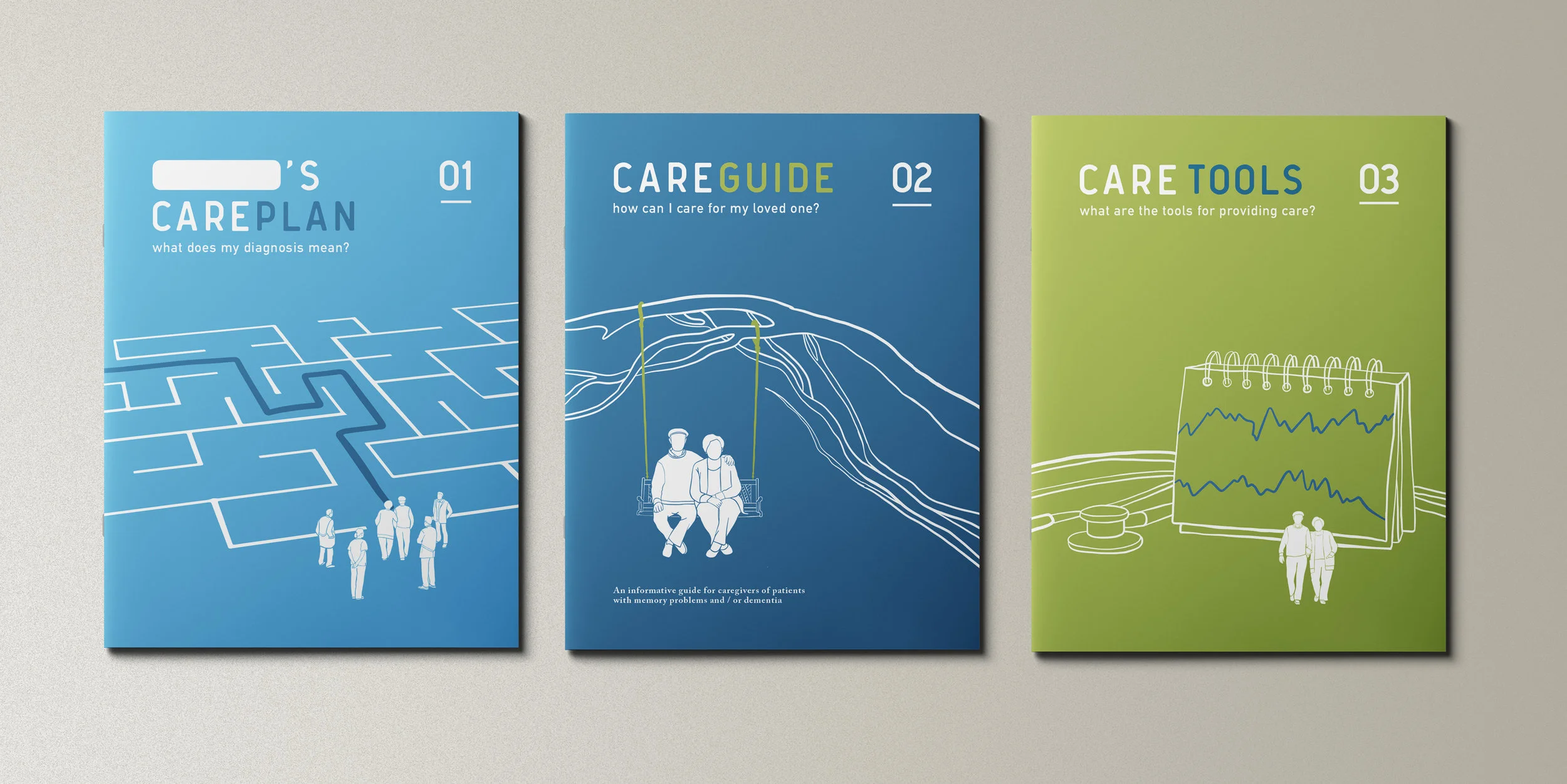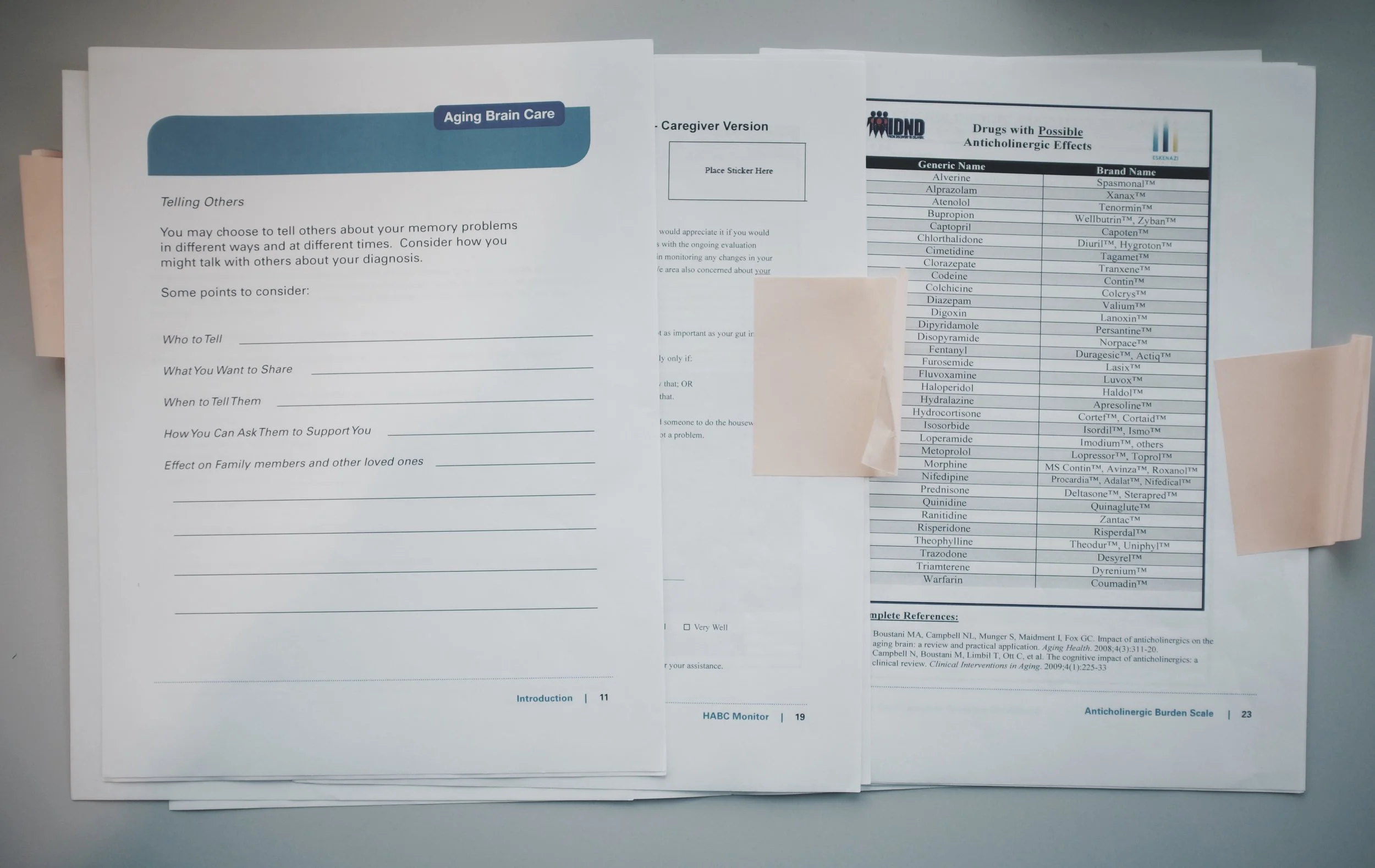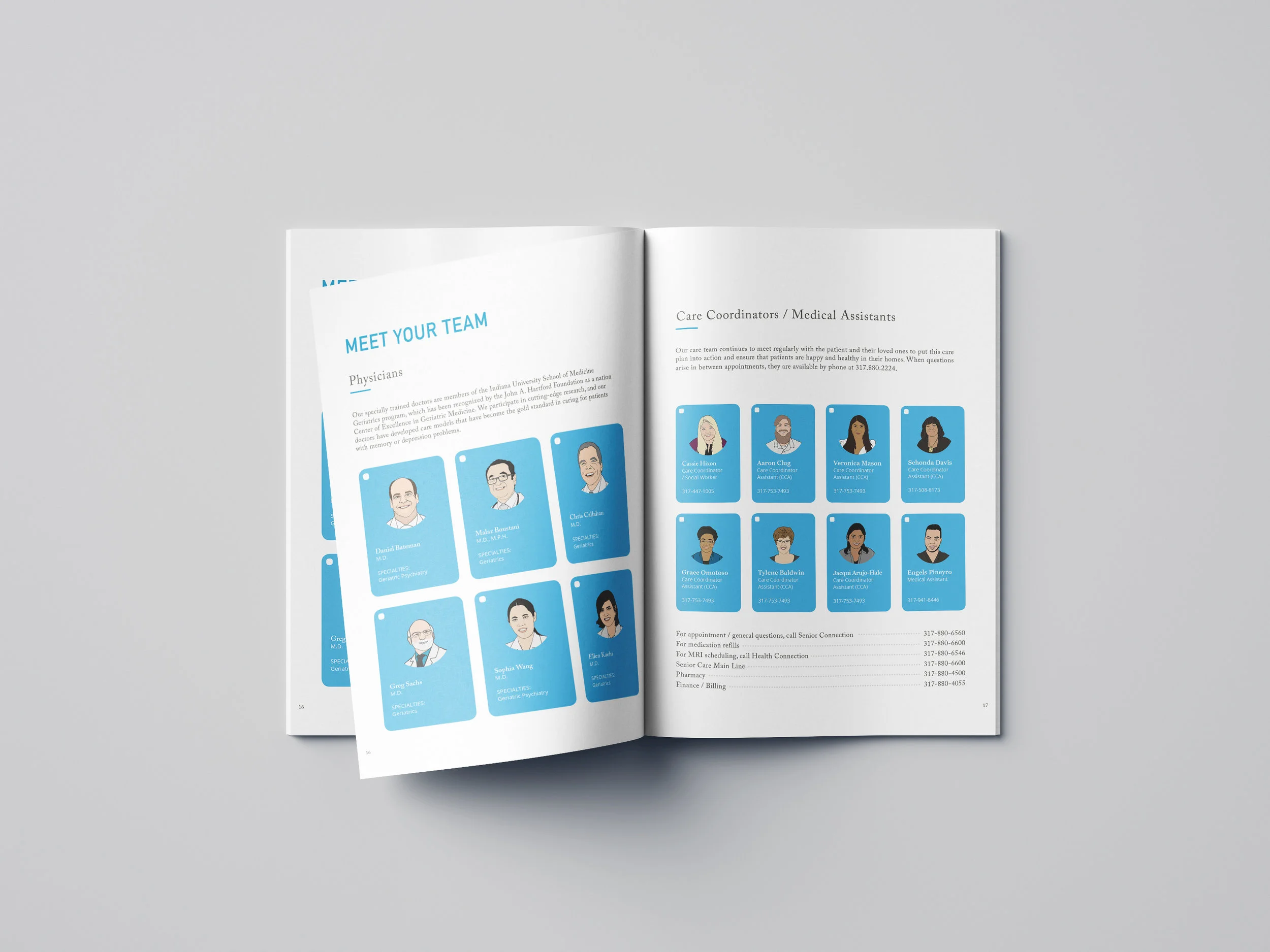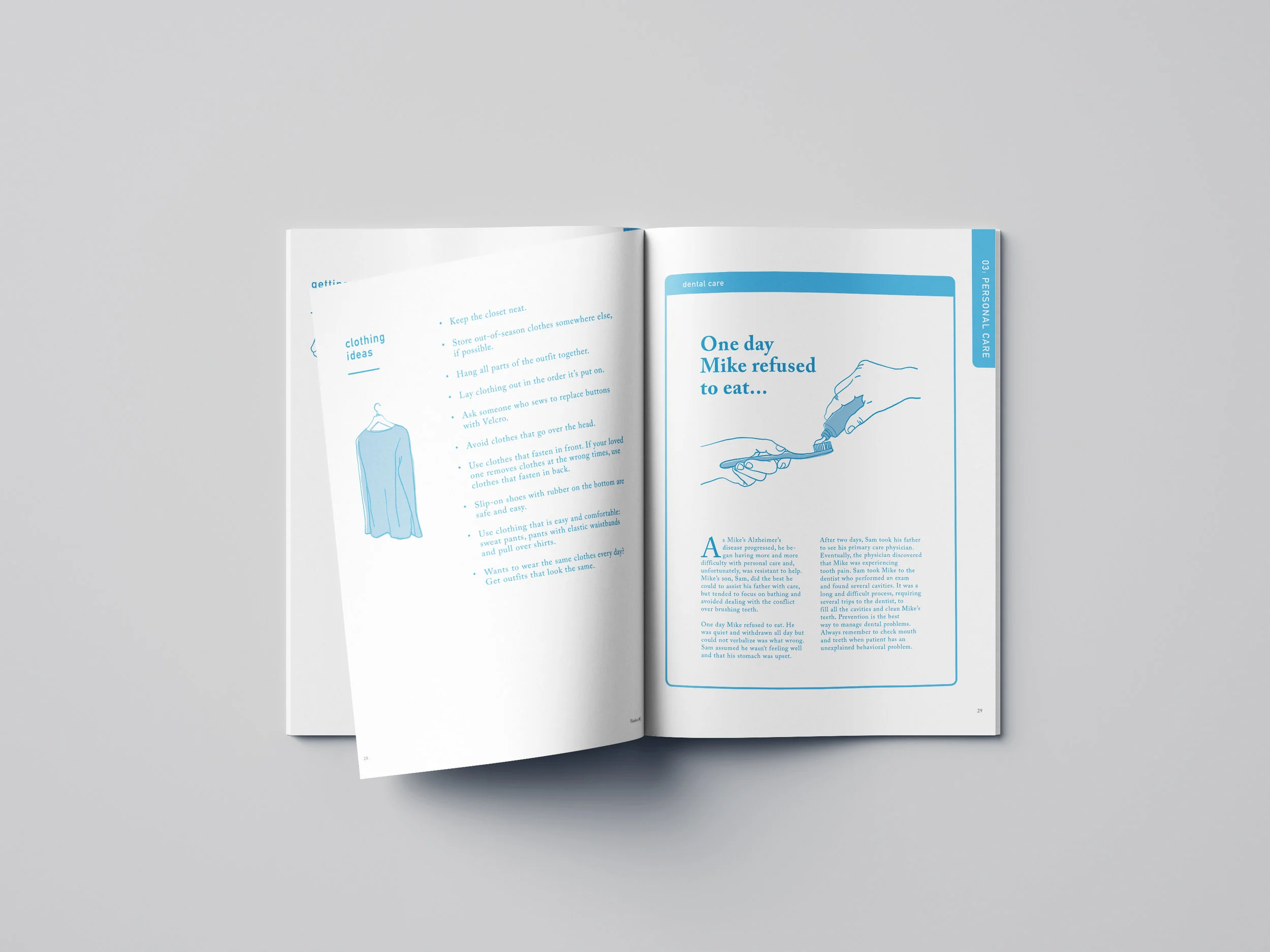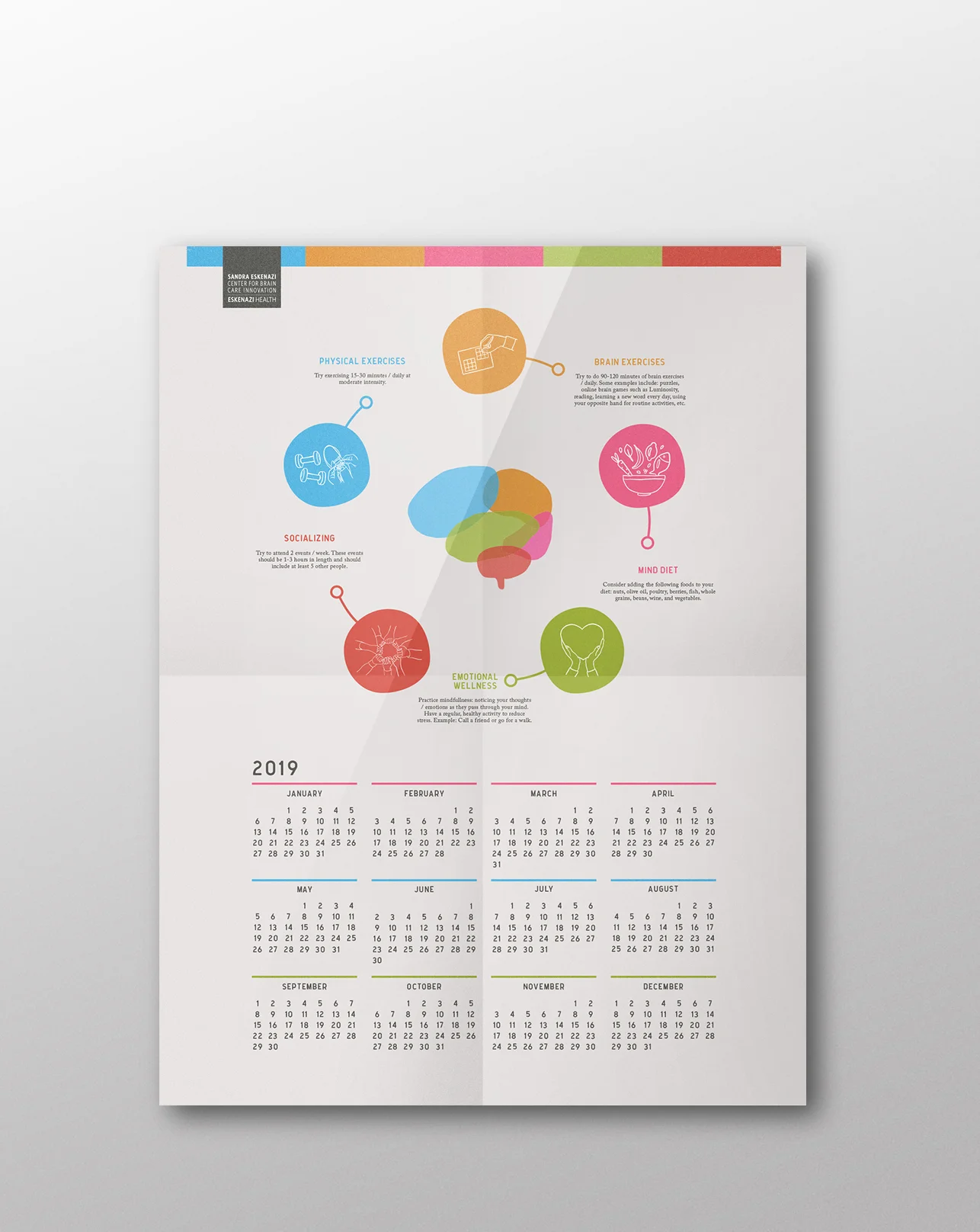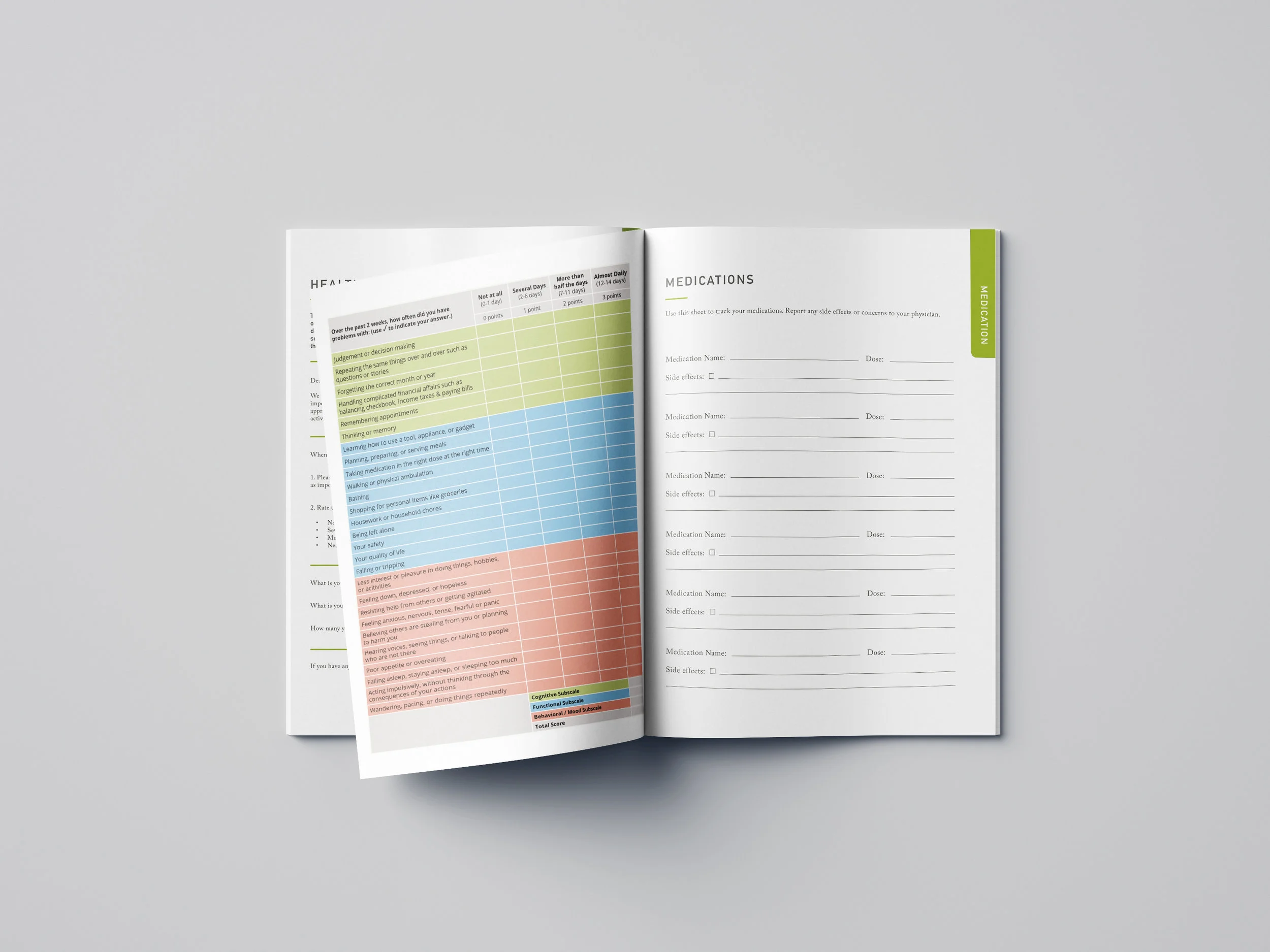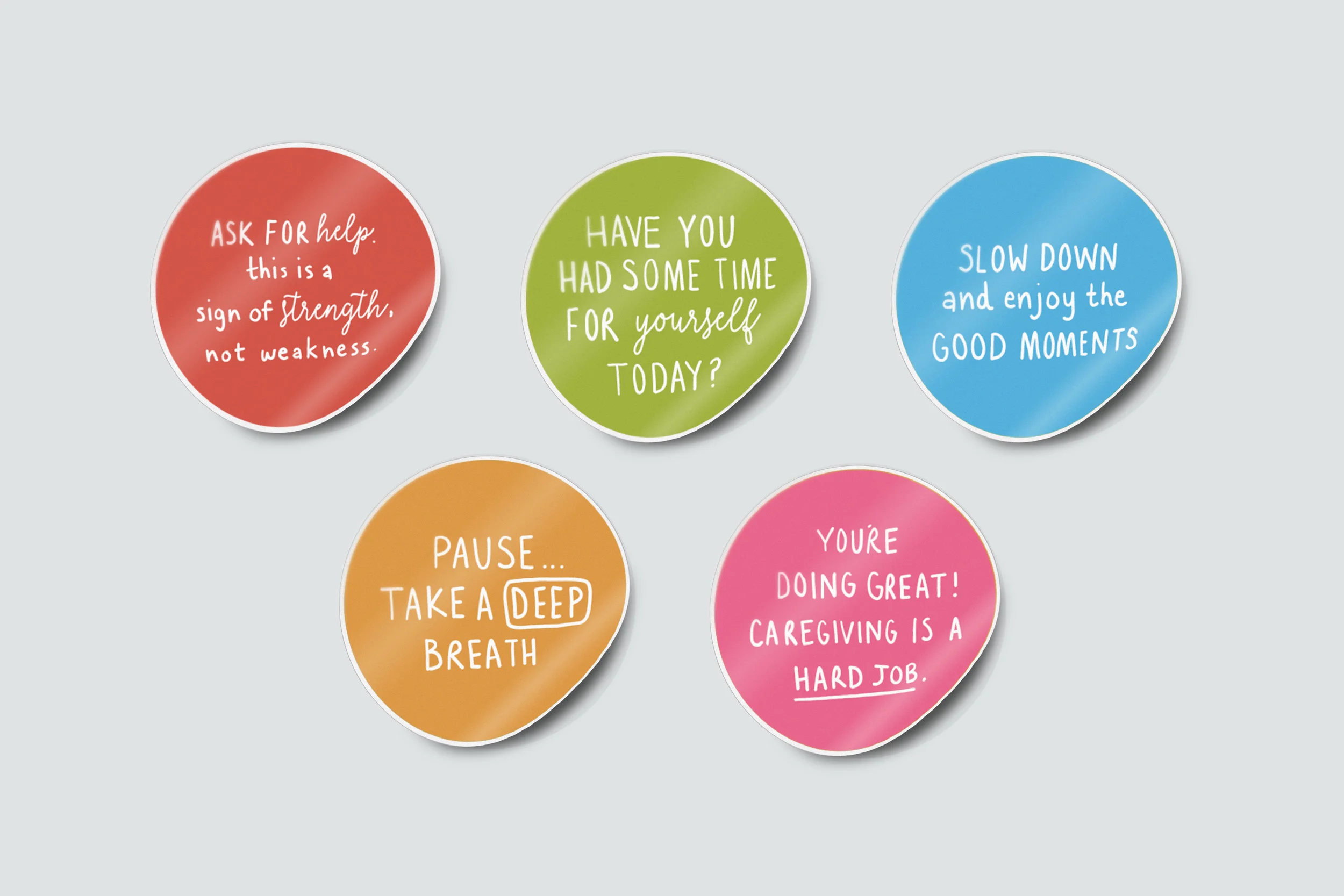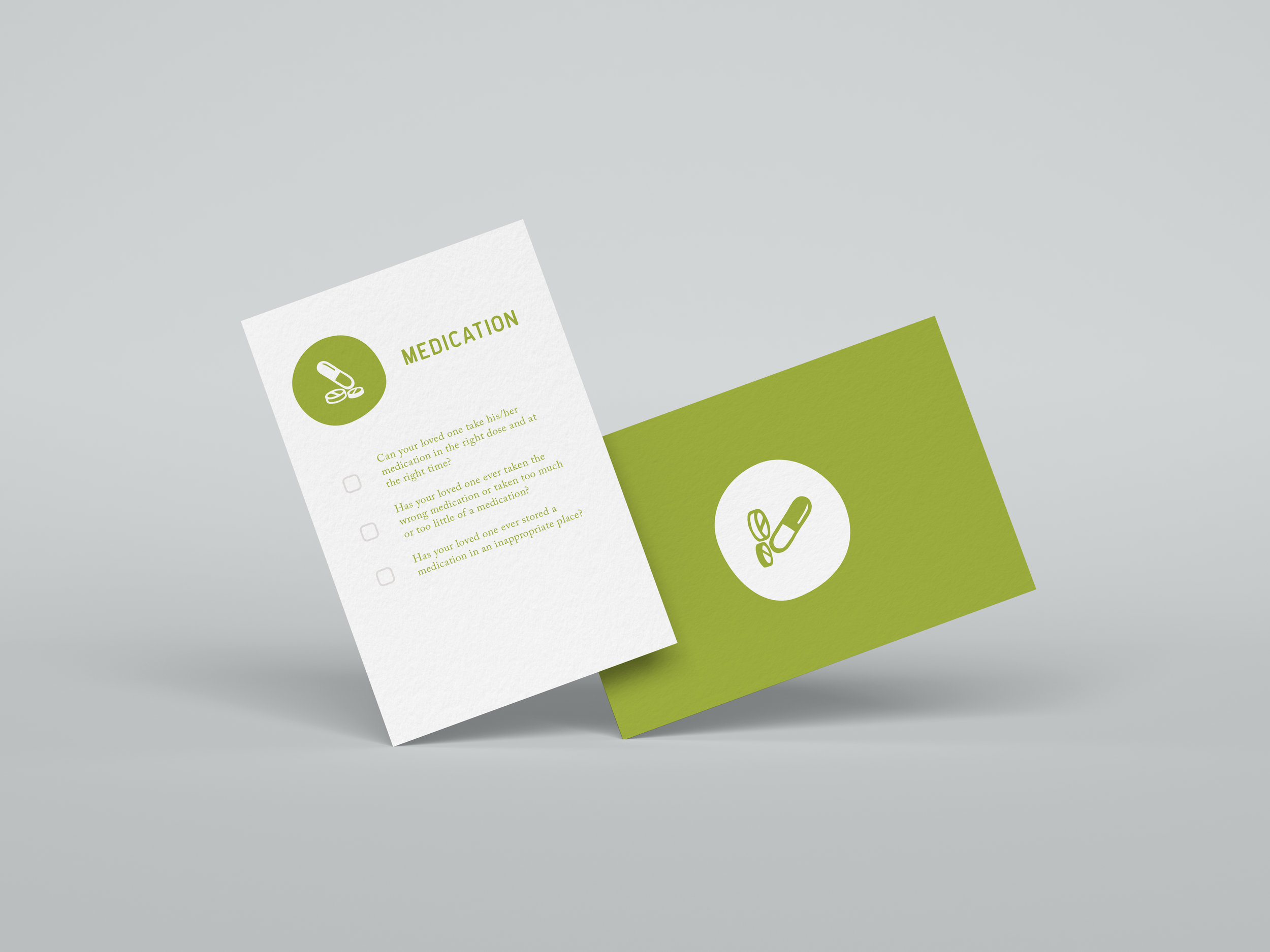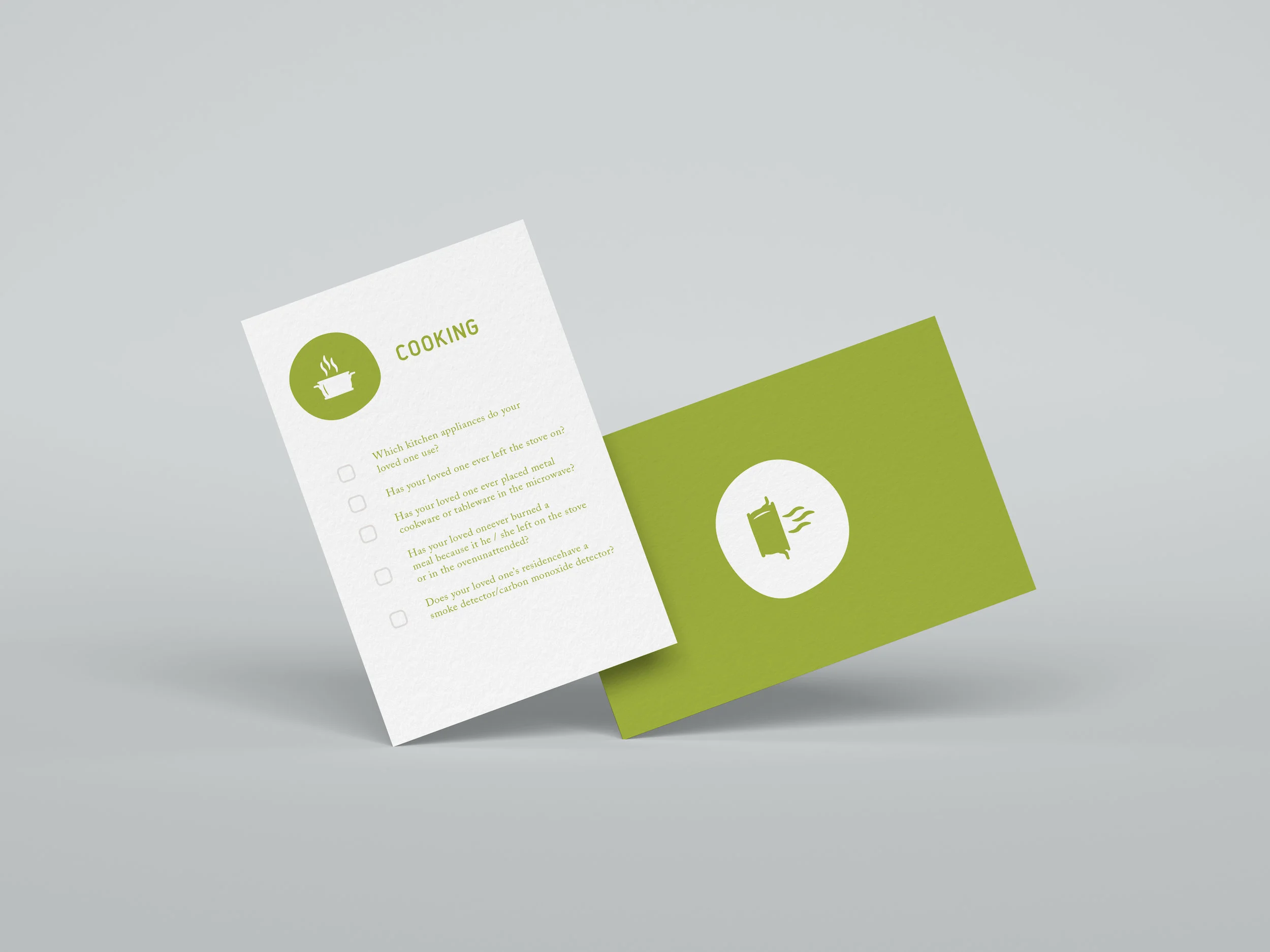Eskenazi senior care [Design Research + Information Design]
OVERVIEW
The goal of this project was to identify gaps between caregivers’ needs and the services provided by Eskenazi and to develop a strategic plan to reimagine the information experience for caregivers of dementia patients.
My initial role in this project was assisting with the design research engagement with patients, caregivers, department staff, and Eskenazi physicians. My role in the second phase of this project was redesigning the caregiver information experience including a new set of care tools for dementia patients and their caregivers.
project partners
Research + Design Lead:
Youngbok Hong, Professor of Visual Communication Design and Graduate Program Director, Design Thinking and Design Leadership - Herron School of Art & Design
Eskenazi Partners:
Catherine Alder, JD, MSW, Director of Business and Research Operations, Center for Brain Care Innovation, Eskenazi Health
Research Assistant / Information Designer:
Madison Anderson, Graduate Student, Visual Communication Design, Design Thinking and Design Leadership - Herron School of Art & Design
understanding + framing problem
Over a 4 week period, the research team conducted 13 engagement sessions in the Eskenazi Health Senior Care Unit. These sessions consisted of conversational interviews with patients and caregivers as well as observations of the waiting room and surrounding areas. Through the data collected during these sessions, the researchers developed a framework for segmenting types of caregivers.
The research team also sought to understand the existing caregiver experience through appointment / family conference observations, physician and care team interviews, and analysis of the existing information materials.
primary outcomes
The primary outcome of this project was a redesigned information experience for caregivers. The new information design included three distinct entities: 01: Care Plan, 02: Care Guide, and 03: Care Tools.
01 Care Plan:
The Care Plan would be utilized during the diagnosis appointment / family conference.
This piece would help the patient / caregiver:
gain a broad understanding of what the diagnosis means
learn who their care team is
and learn how their care team would support them through their journey
02 Care Guide:
The Care Guide was designed as a daily reference for caregivers caring for a loved one with dementia.
This guide includes:
support to help caregivers cope with their important but challenging role
information to assist with communication, personal care, and behavior / mood issues that dementia patients may face
03 Care Tools:
The Care Tools are designed to help the caregiver with some of the daily aspects of caregiving.
Some of the items included in this toolbox are:
a calendar with reminders about physical and mental health
stickers with encouraging messages for caregivers
safety cards to remind caregivers of activities that could be potentially dangerous for their loved one

